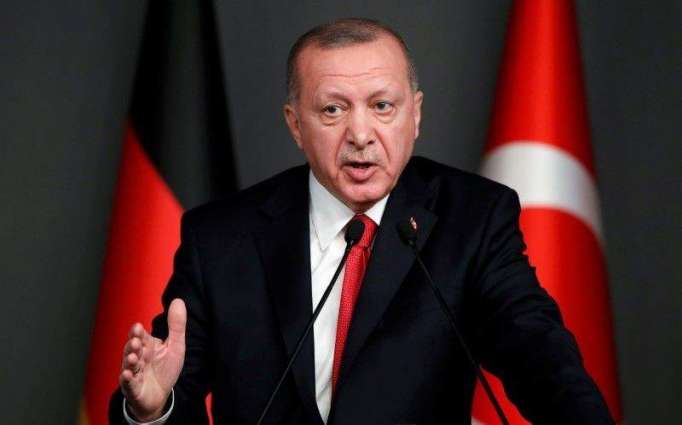The terms of a communique published after the recent Berlin conference on Libya cannot be considered effective without the signature of the head of the Libyan National Army (LNA) Field Marshal Khalifa Haftar, Turkish President Recep Tayyip Erdogan said on Monday
ANKARA (Pakistan Point News / Sputnik - 28th January, 2020) The terms of a communique published after the recent Berlin conference on Libya cannot be considered effective without the signature of the head of the Libyan National Army (LNA) Field Marshal Khalifa Haftar, Turkish President Recep Tayyip Erdogan said on Monday.
In early January, Libya's rival powers, the LNA and the UN-backed Government of National Accord (GNA), attended a summit in Moscow, mediated by Russia and Turkey. However, Haftar asked for extra time before signing a ceasefire agreement. On January 19, participants of the Berlin conference on Libya called on the United Nations to facilitate ceasefire talks.
"In Berlin and in Moscow, Haftar did not sign the prepared and agreed communique. [GNA Prime Minister] Sarraj gave his signature. In international practice, if one side does not sign an agreement, it cannot be said that it has entered into force. Haftar does not want to agree to a truce, and I hope that the participants of the Berlin conference are aware of this, and make the appropriate decisions," Erdogan told journalists while conducting a visit to The Gambia, as televised by the NTV broadcaster.
Turkey has offered military assistance to the GNA after Tripoli and Ankara signed a memorandum of understanding on security and military cooperation in late November. On Monday, Erdogan once again stressed that Turkish forces in Libya are only providing training for GNA troops, while stating that foreign mercenaries, in particular from the United Arab Emirates and Sudan, are actively fighting on Haftar's side.
Alongside calls for a ceasefire, participants at the Berlin peace conference urged the Security Council to impose sanctions on those who would breach any truce agreement. The UN also called for an establishment of a 5+5 military committee, which will be tasked with monitoring the ceasefire's implementation, and both sides of the conflict have verbally agreed to it.
After the ouster and assassination of then-Libyan leader Muammar Gaddafi in 2011, the country was plunged into political turmoil. Today, Libya is divided between two centers of power � an elected parliament in the country's east, supported by Haftar's LNA, and the UN-backed Tripoli-based GNA in the west.




